How visionary agricultural training programs are transforming vulnerable communities while creating scalable solutions for global food security
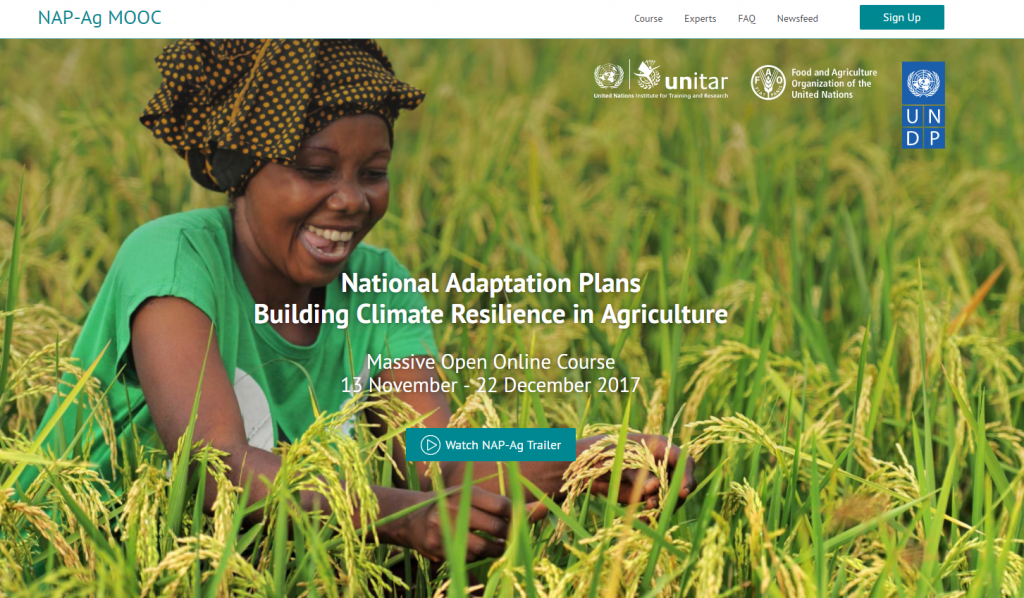
In the boardrooms of multinational corporations and the strategic planning sessions of major foundations, a profound realization is reshaping how visionary leaders approach global sustainability. The farmers who feed the world—often operating on less than two hectares—are simultaneously the most vulnerable to climate change and the most essential to solving it. For sustainability-conscious executives, philanthropists, and investors who understand that environmental challenges require systemic solutions, farmer education represents the highest-leverage intervention for addressing food shortages, poverty elevation, and climate resilience simultaneously.
These aren’t just agricultural programs—they’re comprehensive transformation initiatives that combine cutting-edge sustainable products, innovative green products, and eco-friendly technologies with time-tested farming wisdom. From war ravaged regions where farmers are rebuilding both their lands and their communities to drought-stricken areas where bio-packaging innovations are creating new income streams, sustainable agriculture training is proving that small-scale solutions can create global-scale change.
The Farmer Education Revolution: More Than Agricultural Training
Why the Gates Foundation Prioritizes Agricultural Development
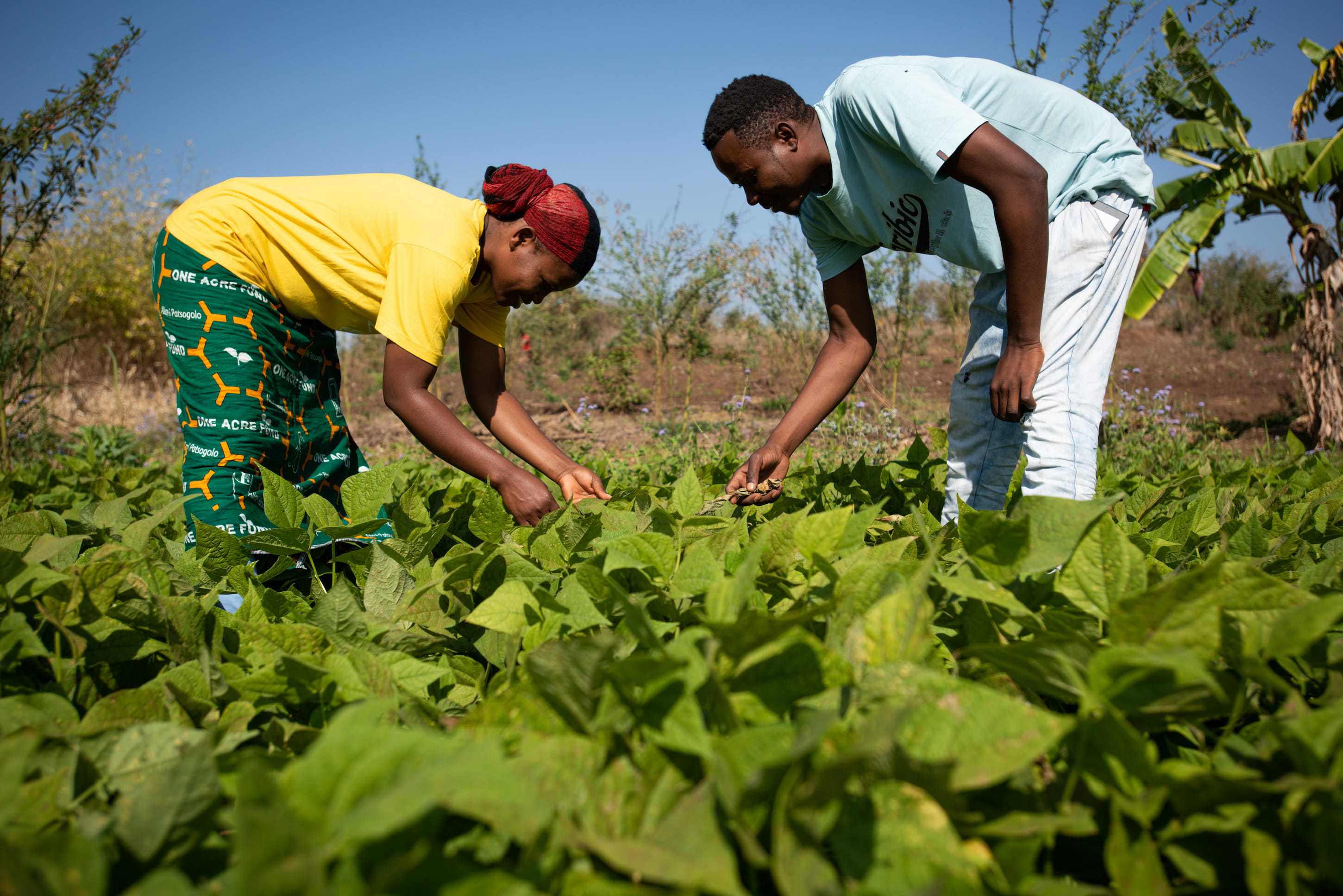
The Gates Foundation’s agricultural development program has committed over $4 billion to sustainable agricultural innovation, with a specific focus on smallholder farmer education. Their investment strategy recognizes a fundamental truth: teaching farmers to grow sustainably doesn’t just increase yields—it creates resilient communities that can adapt to climate change, develop sustainable products, and break cycles of poverty.
The foundation’s approach emphasizes three critical components that align with the interests of strategic philanthropists: scalability, measurable impact, and community ownership. Rather than simply providing inputs or infrastructure, their programs focus on knowledge transfer that enables farmers to become innovation leaders within their own communities.
Consider their success in sub-Saharan Africa, where farmer education programs have increased crop yields by 30-40% while reducing input costs by 25%. But the true impact extends far beyond agricultural metrics. Trained farmers become community teachers, local entrepreneurs, and advocates for eco-friendly practices that benefit entire regions.
The Climate Adaptation Imperative

Climate change is fundamentally altering the agricultural landscape, with smallholder farmers facing unprecedented challenges from changing precipitation patterns, extreme weather events, and shifting pest dynamics. Traditional farming methods that sustained communities for generations are increasingly inadequate, creating urgent needs for adaptive education that enables farmers to thrive in new environmental conditions.
The ClimateWorks Foundation and other leading climate philanthropists have identified farmer education as a critical climate adaptation strategy. Their research shows that every dollar invested in climate-smart agriculture training yields $7-9 in economic returns through improved resilience, reduced losses, and increased productivity.
But the true value lies in the systemic change that education enables. Farmers who understand climate-smart techniques become community resources who can help entire regions adapt to changing conditions. They develop local solutions that combine traditional knowledge with modern innovations, creating sustainable products and practices that can be scaled across similar environments.
Transforming Lives Through Agricultural Innovation
Case Study: From Conflict to Abundance in Eastern Africa

In regions affected by conflict and instability, agricultural education serves a dual purpose: rebuilding food systems while creating social cohesion. The CGIAR initiative to help 30 million smallholder farmers adapt to climate change by 2030 demonstrates how farmer education can transform entire regions.
In Rwanda, a country still recovering from devastating conflict, sustainable agriculture training programs have become engines of economic development and social healing. Farmers learn not only climate-smart techniques but also cooperative management, green products development, and community leadership skills.
The results speak to the interests of impact-focused investors:
Economic Development: Participating farmers have increased their incomes by 150% on average, with women farmers showing particularly strong gains in economic empowerment.
Environmental Restoration: Trained farmers have restored 45,000 hectares of degraded land using sustainable techniques, sequestering significant amounts of carbon while improving soil health.
Social Cohesion: Farmer learning groups bring together people from different ethnic backgrounds, building relationships that strengthen community resilience and reduce conflict potential.
Innovation Diffusion: Successful farmers become extension agents within their communities, spreading knowledge and techniques that benefit thousands of additional families.
Technology Integration and Digital Agriculture
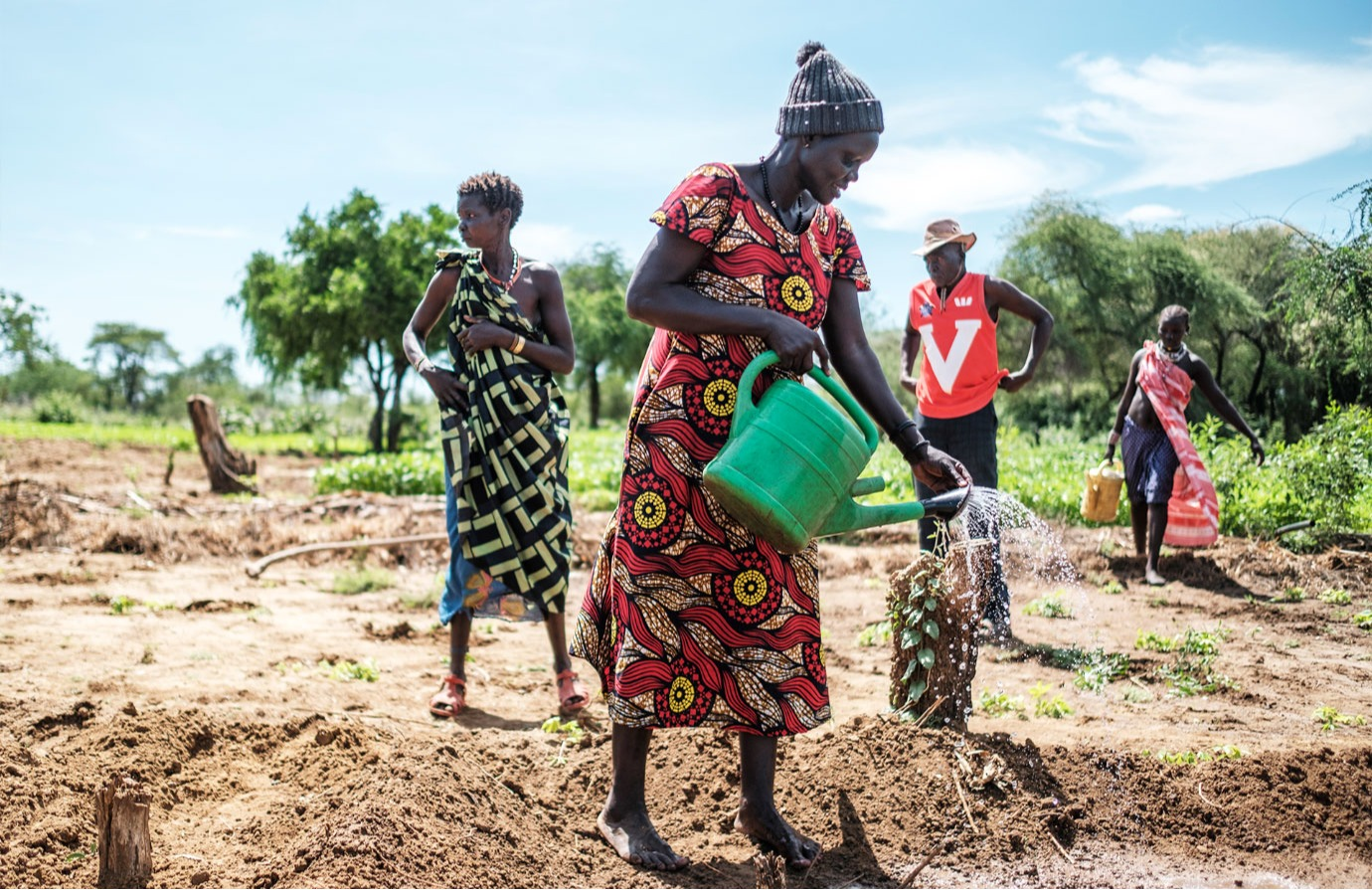
Modern farmer education programs leverage technology to scale impact while maintaining personalized, culturally appropriate approaches. Digital platforms enable farmers to access training materials, connect with experts, and share experiences across geographic boundaries.
The FAO’s digital agriculture initiatives exemplify how technology can democratize access to agricultural knowledge. Farmers use mobile phones to access weather data, market prices, and technical advice, while satellite monitoring helps them optimize resource use and track environmental impacts.
But technology serves education rather than replacing human connection. The most successful programs combine digital tools with in-person training, creating blended learning environments that respect traditional knowledge while introducing innovative approaches.
Precision Agriculture: Farmers learn to use GPS and sensor technologies to optimize input use, reducing costs while minimizing environmental impact.
Data-Driven Decision Making: Training programs teach farmers to collect and analyze data on soil health, weather patterns, and crop performance, enabling continuous improvement.
Market Connectivity: Digital platforms connect farmers directly with buyers, eliminating intermediaries and increasing income while ensuring quality standards.
Peer Learning Networks: Online communities enable farmers to share experiences, troubleshoot challenges, and collaborate on innovation development.
Sustainable Products and Green Innovation in Agriculture
Bio-Packaging: Creating Value Streams from Agricultural Waste

One of the most exciting developments in farmer education involves teaching agricultural communities to create bio-packaging and other sustainable products from crop residues and organic waste. These programs address multiple challenges simultaneously: waste management, additional income generation, and environmental protection.
In Indonesia, farmers traditionally burned rice straw after harvest, contributing to air pollution and losing valuable organic matter. Sustainable agriculture training programs now teach farmers to convert rice straw into biodegradable packaging materials, creating additional income streams worth $200-400 per hectare annually.
The bio-packaging production process requires minimal investment but significant knowledge transfer. Farmers learn:
Material Processing: Techniques for preparing agricultural waste for bio-packaging production, including cleaning, sizing, and treatment methods.
Quality Control: Standards and testing procedures that ensure bio-packaging products meet commercial requirements for strength, durability, and biodegradability.
Business Development: Marketing, pricing, and customer relationship skills that enable farmers to build sustainable green products enterprises.
Cooperative Management: Organizational skills for forming and managing producer cooperatives that can achieve economies of scale and market power.
Eco-Friendly Input Production and Local Manufacturing
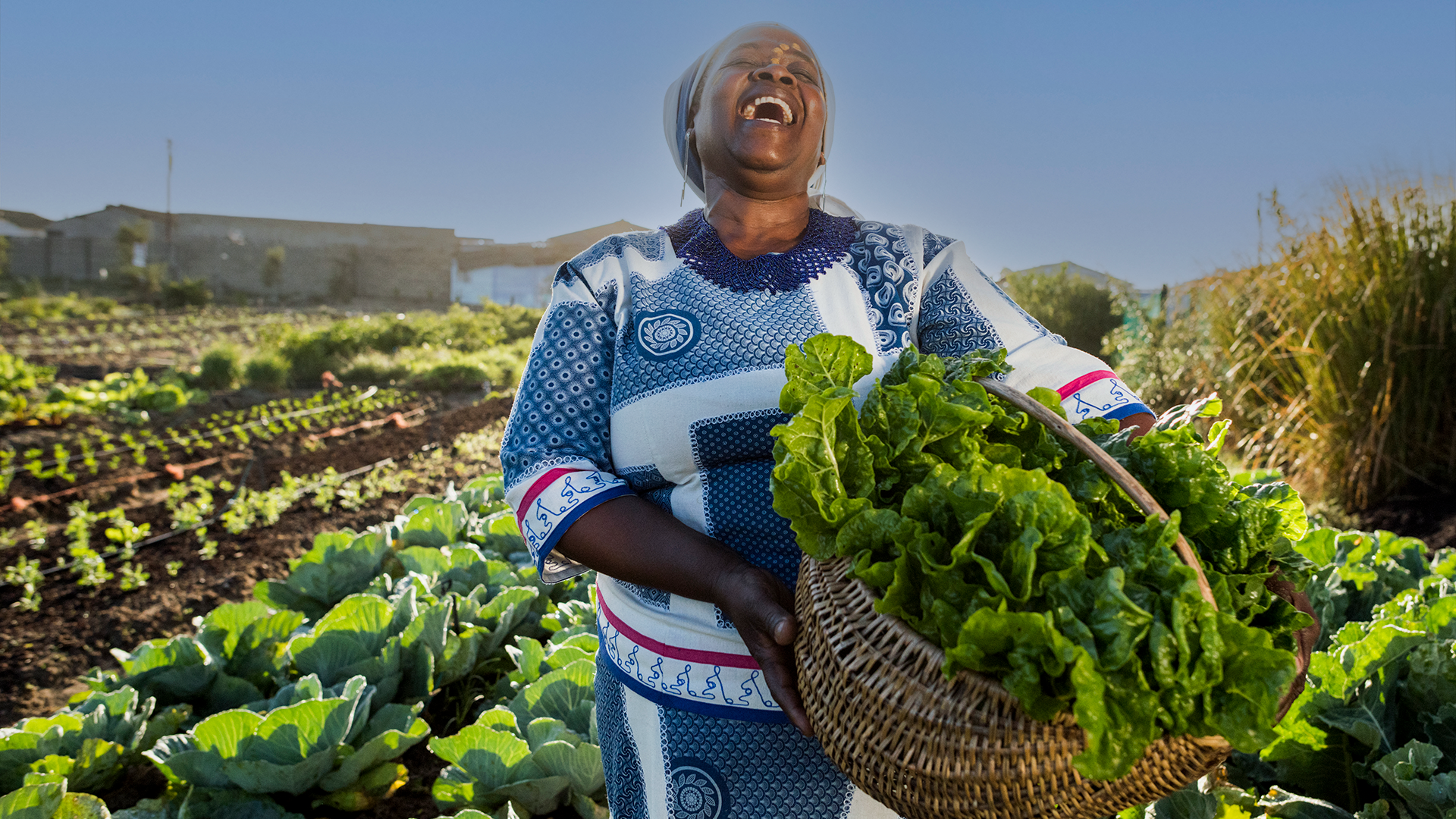
Advanced farmer education programs teach communities to produce their own eco-friendly agricultural inputs, reducing dependence on expensive external purchases while improving environmental outcomes. These initiatives create local manufacturing capacity that generates employment while supporting sustainable agriculture.
Biological Pest Control: Farmers learn to breed and release beneficial insects, prepare botanical pesticides, and manage ecosystem balance for natural pest control.
Organic Fertilizer Production: Training in composting, vermiculture, and biofertilizer preparation enables farmers to improve soil health while reducing input costs.
Seed Production and Breeding: Farmers develop expertise in seed selection, preservation, and improvement, maintaining genetic diversity while adapting crops to local conditions.
Equipment Manufacturing: Local production of simple tools and equipment using available materials and skills, creating rural employment while supporting agricultural development.
Addressing Global Food Security Through Local Action
Fighting Food Shortages Through Knowledge Transfer
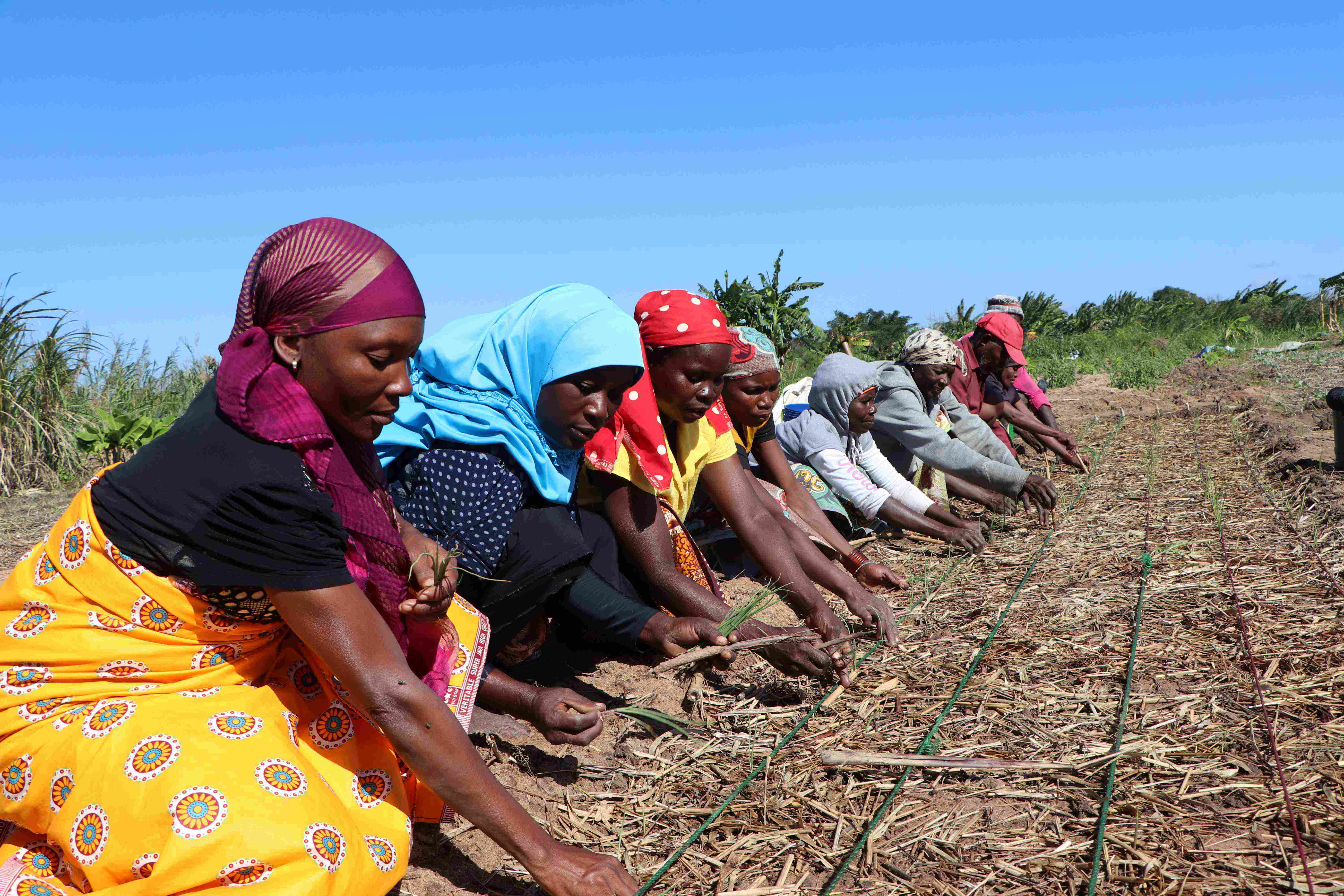
Food shortages increasingly result from knowledge gaps rather than absolute resource scarcity. Many regions have adequate land and water resources but lack the technical knowledge necessary to use them effectively. Farmer education programs address this by transferring proven techniques that can dramatically increase productivity while improving sustainability.
The One Acre Fund’s approach demonstrates how education-focused interventions can achieve remarkable scale and impact. By training farmers in climate-smart techniques and providing access to sustainable products like improved seeds and eco-friendly fertilizers, they’ve helped over 1.3 million farmers increase their incomes while improving environmental outcomes.
Yield Optimization: Training programs typically increase yields by 30-50% through improved variety selection, spacing, timing, and management practices.
Risk Management: Farmers learn diversification strategies, insurance concepts, and adaptive management techniques that reduce vulnerability to climate and market shocks.
Post-Harvest Management: Education in storage, processing, and preservation techniques reduces food losses by 15-25%, effectively increasing food availability without expanding production.
Nutrition Enhancement: Training in crop diversity and kitchen garden management improves household nutrition while reducing food costs.
Scaling Success Through Farmer-to-Farmer Education

The most effective farmer education programs create multiplication effects by training community members to become local educators and extension agents. This approach achieves scale while maintaining cultural relevance and community ownership.
Lead Farmer Networks: Outstanding participants become community educators who provide ongoing support and training to their neighbors, creating sustainable knowledge transfer systems.
Demonstration Plots: Successful farmers maintain demonstration sites where others can observe techniques and results, providing concrete evidence of program benefits.
Cooperative Leadership: Training in organizational management enables farmers to form and lead cooperatives that provide collective bargaining power and shared resources.
Innovation Development: Experienced farmers become research partners who adapt techniques to local conditions and develop new approaches based on traditional knowledge and modern science.
The Investment Case: ROI and Impact Measurement
Financial Returns and Economic Development

For investors and philanthropists accustomed to rigorous impact measurement, farmer education programs offer compelling returns across multiple metrics. The Bezos Earth Fund and other major climate philanthropies prioritize agricultural education because of its proven ability to generate measurable, sustainable impact.
Direct Economic Impact: Participating farmers typically see income increases of 40-80% within two growing seasons, with women farmers often experiencing even higher gains due to improved access to knowledge and resources.
Multiplier Effects: Each trained farmer influences an average of 8-12 other farmers through informal knowledge sharing, creating impact that extends far beyond direct participants.
Cost Effectiveness: Farmer education costs $50-150 per participant but generates economic benefits worth $1,000-3,000 annually, providing exceptional return on investment.
Sustainability: Unlike input subsidies or infrastructure projects that require ongoing external support, knowledge-based interventions create lasting capacity that continues generating benefits indefinitely.
Environmental and Climate Impact
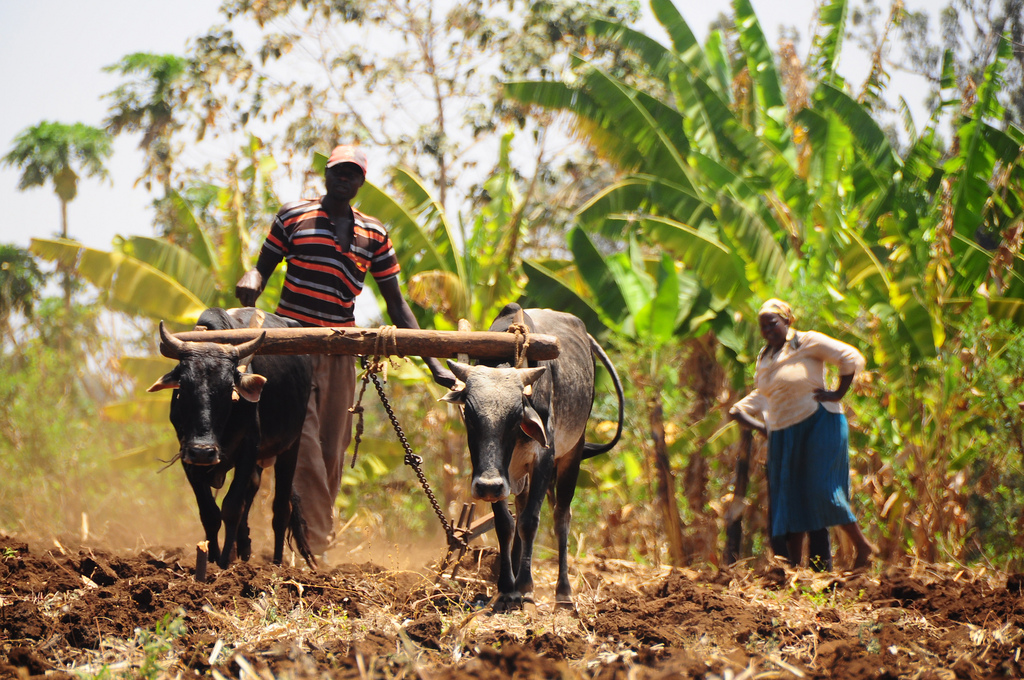
Farmer education programs generate significant environmental benefits that align with the climate goals of sustainability-focused philanthropists. These programs create measurable carbon sequestration, biodiversity improvements, and ecosystem restoration that can be tracked and verified over time.
Carbon Sequestration: Climate-smart agriculture techniques taught in farmer education programs sequester 2-5 tons of CO2 per hectare annually, creating verifiable carbon credits that can offset program costs.
Biodiversity Enhancement: Trained farmers typically increase on-farm biodiversity by 25-40% through diversification, habitat creation, and eco-friendly pest management practices.
Water Conservation: Education in efficient irrigation and soil management reduces water use by 20-30% while maintaining or increasing yields, crucial for regions facing water scarcity.
Pollution Reduction: Sustainable products and eco-friendly input use reduces agricultural pollution, protecting water quality and ecosystem health in surrounding areas.
War Ravaged Regions: Agriculture as Peace Building
Rebuilding Communities Through Shared Learning
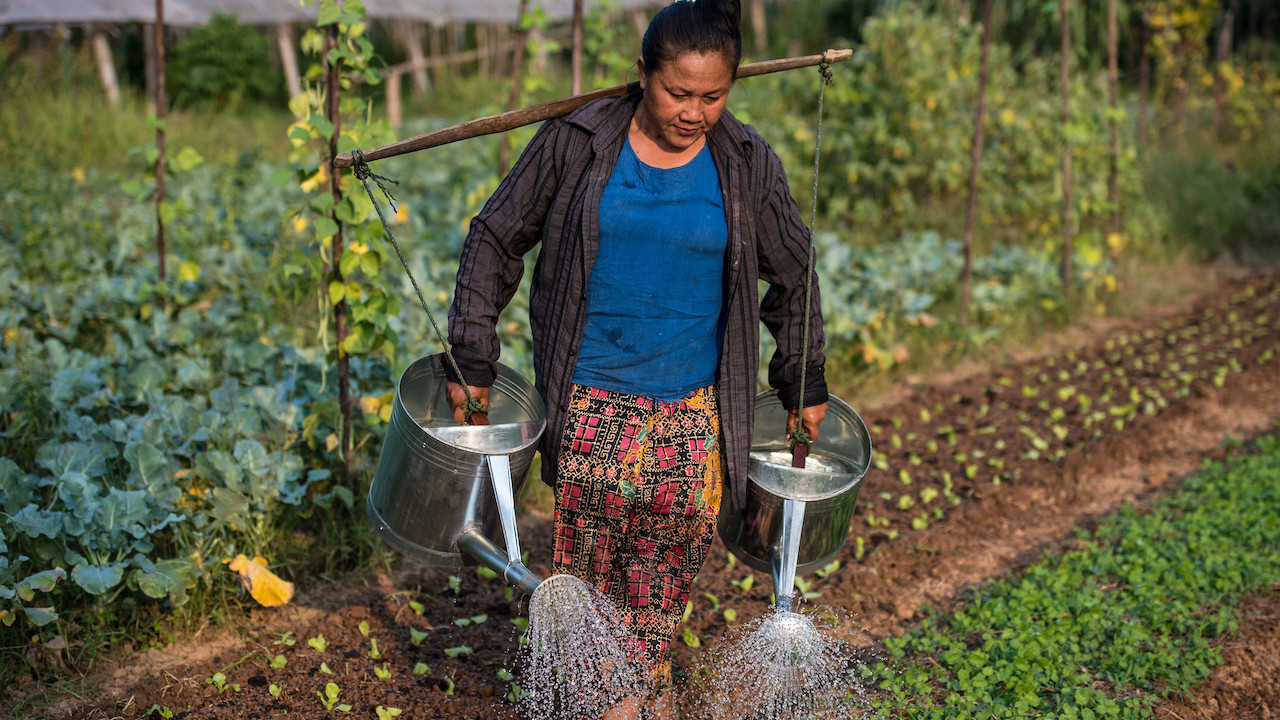
In war ravaged regions, farmer education serves purposes beyond agricultural development. These programs create neutral spaces where people from different communities can work together on shared goals, building relationships that support broader peace and reconciliation efforts.
Conflict-Sensitive Programming: Education programs in post-conflict areas are designed to bring together participants from different ethnic, religious, or political backgrounds, creating opportunities for positive interaction and cooperation.
Economic Reintegration: Training programs help ex-combatants and displaced people develop productive livelihoods, reducing incentives for participation in illegal or destabilizing activities.
Social Cohesion: Shared learning experiences create bonds between participants that extend beyond the program, building social capital that strengthens community resilience.
Resource Management: Training in sustainable resource use reduces competition and conflict over scarce land and water resources, addressing root causes of environmental conflict.
Building Institutional Capacity
Farmer education programs in post-conflict settings often include training in cooperative management, conflict resolution, and democratic decision-making. These skills help communities develop effective governance structures that can manage resources sustainably while maintaining social harmony.
Leadership Development: Programs identify and train local leaders who can guide community development efforts and represent farmer interests in broader political processes.
Collective Action: Training in cooperative formation and management enables farmers to work together on marketing, input procurement, and advocacy, building institutional capacity for long-term development.
Conflict Resolution: Education in negotiation and mediation skills helps communities resolve disputes over land, water, and other resources without resorting to violence.
Civic Engagement: Farmers learn about their rights and responsibilities as citizens, enabling them to participate effectively in democratic processes and advocate for supportive policies.
Innovation and Technology Transfer
Adapting Global Knowledge to Local Conditions
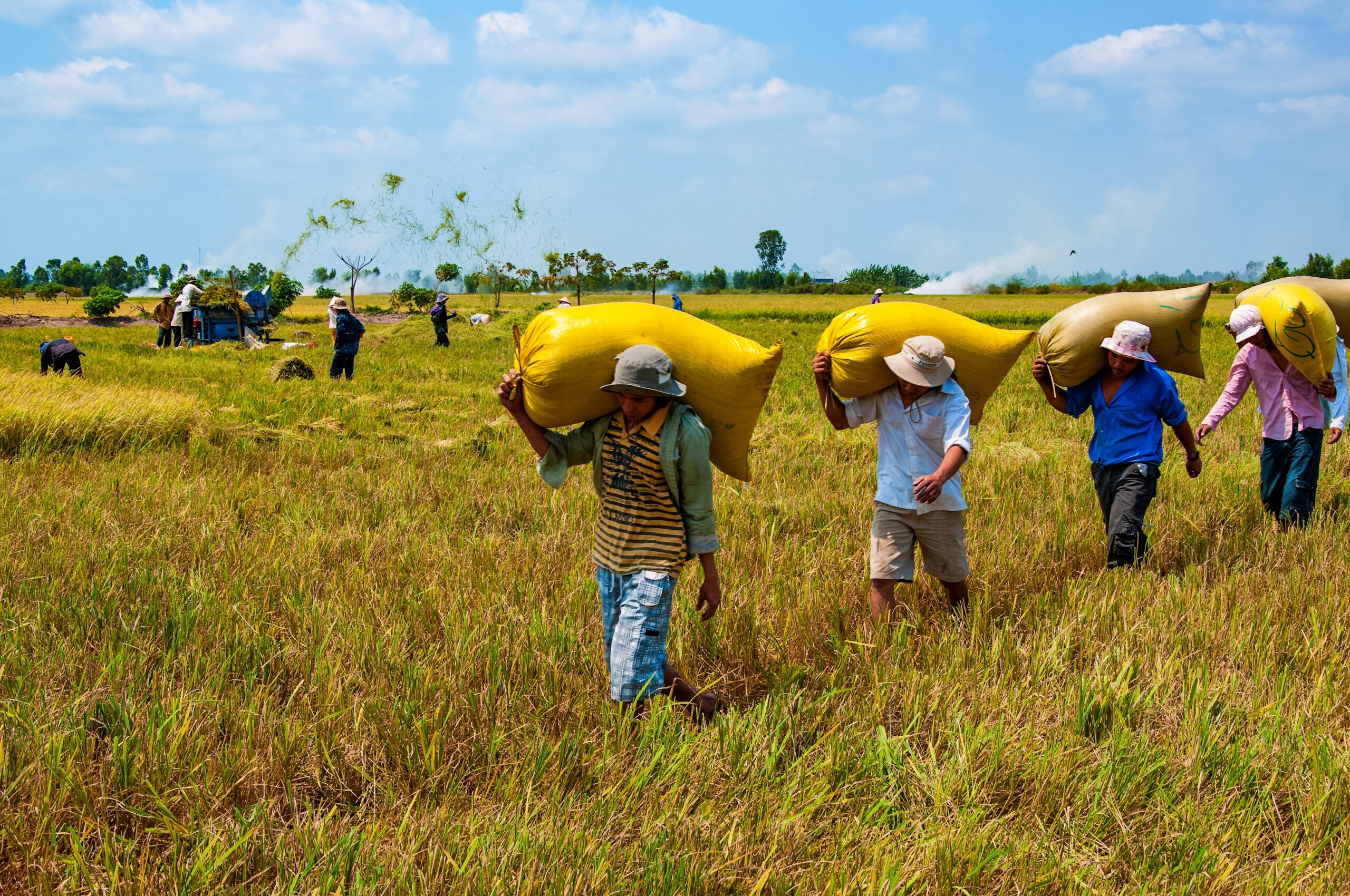
The most effective farmer education programs combine global scientific knowledge with local expertise, creating innovations that are both technically sound and culturally appropriate. This approach respects traditional knowledge while introducing modern techniques that can improve outcomes.
Participatory Research: Farmers become research partners who test new varieties, techniques, and technologies under local conditions, generating evidence about what works in specific environments.
Traditional Knowledge Integration: Programs document and preserve traditional farming knowledge while exploring how it can be combined with modern techniques for optimal results.
Adaptation Strategies: Training emphasizes flexible, adaptive approaches that enable farmers to modify techniques based on changing conditions and new information.
Innovation Networks: Successful programs connect farmers with researchers, extension agents, and other experts, creating networks that support ongoing learning and innovation.
Scaling Successful Innovations
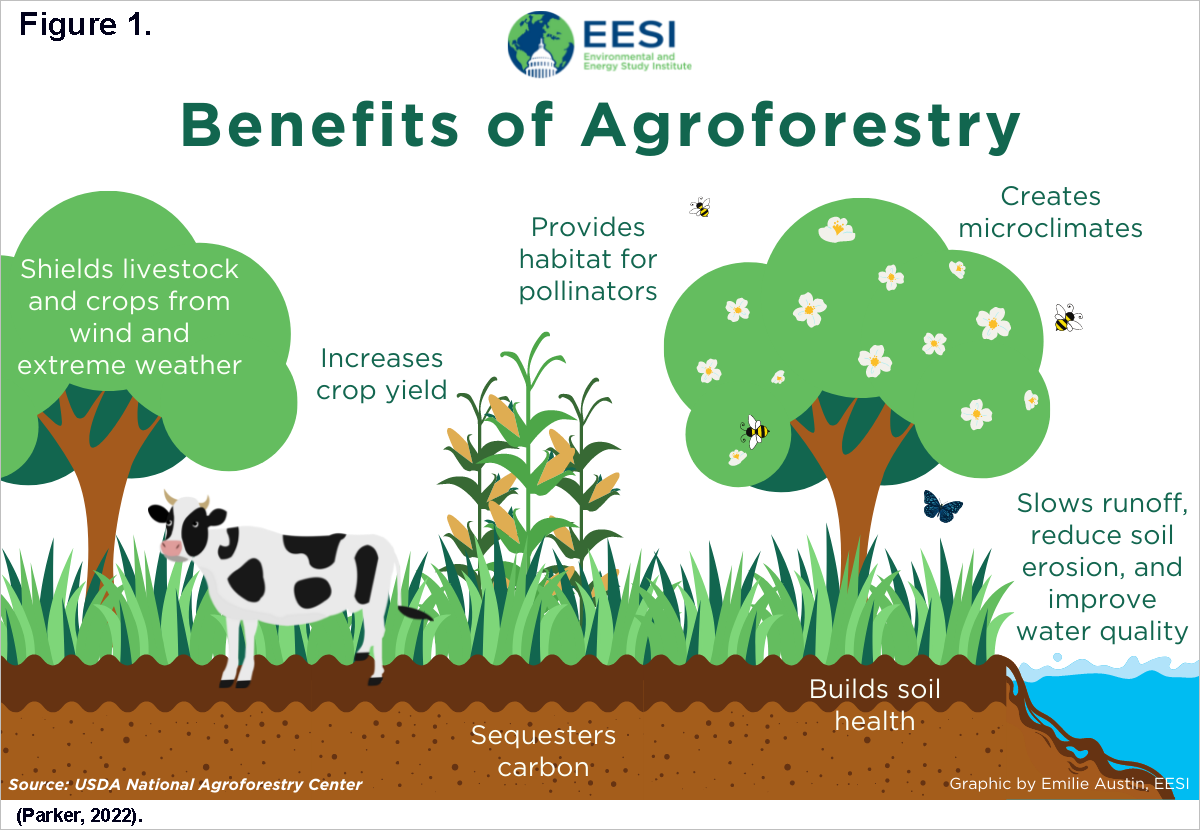
Farmer education programs serve as testing grounds for agricultural innovations that can be scaled across regions and continents. The knowledge generated through these programs informs policy development, technology design, and investment strategies that benefit millions of farmers.
Documentation and Dissemination: Successful programs carefully document their approaches and results, creating resources that can be adapted and replicated in other contexts.
Policy Influence: Evidence from farmer education programs influences government policies on agriculture, environment, and rural development, creating enabling environments for sustainable agriculture.
Technology Development: Feedback from farmers helps technology companies and research institutions develop sustainable products and green products that meet real-world needs and constraints.
Investment Strategies: Results from farmer education programs inform investment decisions by development banks, foundations, and impact investors, directing resources toward proven approaches.
The Strategic Opportunity for Visionary Leaders
Corporate Engagement and Supply Chain Sustainability
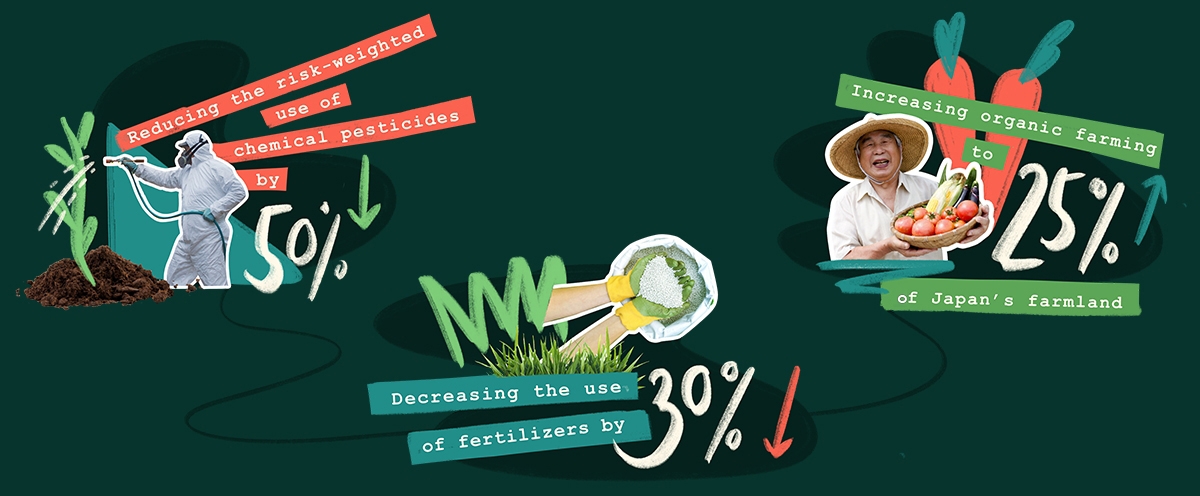
Forward-thinking corporations are integrating farmer education into their supply chain sustainability strategies, recognizing that supporting farmer knowledge and capacity builds more resilient, higher-quality supply chains while creating positive social and environmental impact.
Quality Improvement: Trained farmers produce higher-quality crops that meet international standards for safety, sustainability, and environmental impact, enabling premium pricing and brand differentiation.
Supply Chain Resilience: Farmers with diverse knowledge and adaptive capacity are better able to maintain production despite climate variability, economic shocks, and other disruptions.
Stakeholder Engagement: Corporate support for farmer education creates positive relationships with communities, governments, and NGOs, enhancing social license to operate and brand reputation.
Innovation Partnerships: Companies can work with farmer education programs to test new technologies, sustainable products, and eco-friendly approaches, accelerating innovation while building market relationships.
ESG Integration and Impact Investment
For investors and corporations focused on ESG (Environmental, Social, Governance) performance, farmer education offers measurable impact across all three dimensions while generating financial returns through improved supply chain performance and risk management.
Environmental Impact: Farmer education drives adoption of eco-friendly practices that reduce greenhouse gas emissions, improve biodiversity, and protect natural resources, creating verifiable environmental benefits.
Social Impact: Programs generate measurable improvements in income, food security, gender equity, and community development, addressing multiple UN Sustainable Development Goals simultaneously.
Governance Benefits: Support for farmer education demonstrates long-term thinking, stakeholder engagement, and commitment to sustainable development, enhancing corporate governance ratings and stakeholder trust.
Financial Performance: Companies with sustainable supply chains supported by farmer education show improved profitability, reduced risk, and enhanced long-term value creation.
Your Role in the Agricultural Transformation
Strategic Philanthropy and Sustainable Impact

For sustainability-conscious leaders who understand that global challenges require systemic solutions, farmer education represents one of the highest-leverage interventions available. Your support can transform communities while addressing climate change, food shortages, and poverty elevation simultaneously.
Direct Investment: Support farmer education programs that align with your values and strategic interests, whether focused on specific regions, crops, or technical approaches.
Corporate Integration: Integrate farmer education into your company’s sustainability strategy, creating shared value for communities and business while building supply chain resilience.
Network Leverage: Use your professional networks to amplify awareness and support for farmer education, multiplying impact through collective action.
Innovation Support: Support development and testing of new approaches to farmer education that leverage technology, behavioral science, and systems thinking to achieve greater scale and impact.
Building Movement and Scale

Individual investments in farmer education create value, but collective action creates transformation. By joining with other visionary leaders, you can support the development of an integrated global network of farmer education programs that share knowledge, resources, and innovations.
Collaborative Funding: Participate in collaborative funding initiatives that pool resources to support large-scale farmer education programs with greater impact than individual investments.
Knowledge Sharing: Support platforms and networks that enable farmer education programs to share approaches, lessons learned, and innovations, accelerating improvement across the sector.
Policy Advocacy: Use your influence to advocate for policies that support farmer education, sustainable agriculture, and rural development, creating enabling environments for program success.
Next Generation Engagement: Involve young people in your networks in farmer education programs, building the next generation of leaders who understand the importance of sustainable agriculture and rural development.
The Future of Food: Seeds of Transformation
Climate Resilience and Global Stability

As climate change accelerates and global population continues growing, the farmers trained in today’s education programs will determine whether humanity can achieve food security while protecting the environment. These farmers are not just growing crops—they’re growing sustainability, resilience, and hope for the future.
The knowledge and skills they develop will be passed to the next generation, creating lasting change that extends far beyond individual programs or projects. They will develop new sustainable products, create eco-friendly innovations, and build communities that can thrive despite environmental challenges.
Join the Global Executive Group Network today and support farmer education programs that are planting seeds of hope while harvesting solutions for global sustainability.
Your investment in farmer education is an investment in the future of food, the resilience of communities, and the sustainability of our planet. The farmers learning today will feed the world tomorrow—help them succeed.
The Harvest of Hope
In boardrooms and conference halls around the world, visionary leaders are recognizing that the path to global sustainability runs through the fields of smallholder farmers. Every training program, every demonstration plot, every farmer who learns to grow sustainably in a changing climate represents hope for a world where food shortages become historical curiosities rather than daily realities.
The seeds of change are already planted. The question is whether they will receive the support they need to grow into the transformational force our world desperately needs.
Support the Global Executive Group Network’s farmer education initiatives and help cultivate a future where sustainability, prosperity, and hope grow together.
The harvest of hope begins with your investment today.
This analysis represents the collective insights of agricultural development experts, climate adaptation specialists, and sustainability professionals who are building the future of global food security. For regular updates on sustainable agriculture opportunities and impact stories, connect with the Global Executive Group Network.
About the Author: This strategic analysis was developed by the Global Executive Group Network, a coalition of sustainability-focused executives and philanthropists supporting agricultural innovation that creates lasting change in vulnerable communities worldwide. Learn more at geg-network.org.